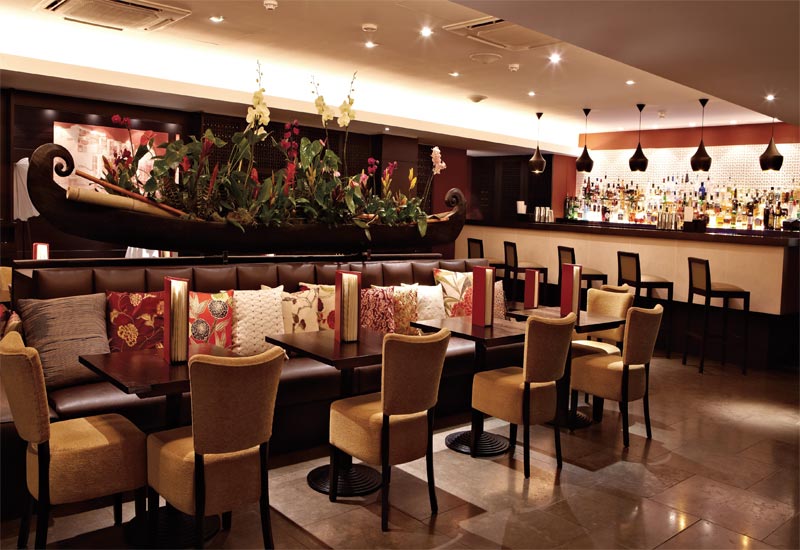 The bar at Benares, London. Kochhar?s Dubai fine-dining restaurant will be based on a similar concept.
The bar at Benares, London. Kochhar?s Dubai fine-dining restaurant will be based on a similar concept.
Making sacrifices
Kochhar is a man with high morals and ethical practices, but he admits he’s had to make sacrifices while working in the UAE.
“In the UK we are working towards a policy of zero wastage. We are coming up with ideas and dishes that produce completely zero waste, and I mean zero.
“I am sorry to see there is so much wastage [in the UAE] – it’s shameful in my opinion. We shouldn’t be throwing any good food into the bin. I recently read about a restaurant in Saudi Arabia that was charging customers if they were leaving their food. It was pushing people to order less, and it was an ingenious policy.

| Advertisement |
“In the UAE, by following a zero-wastage policy, chefs can cut their costs hard too.”
Taking the plunge
Being such a successful and driven restaurateur, and a natural at the television appearances, Kochhar seems to have fallen into his career. Not the case, he reveals.
“When I chose to become a chef I had an admission letter from a medical school in one hand, and one from a kitchen college in the other. I chose to go to the kitchen college and people called me a fool.
“I was looked down upon by my cousins and uncles because at that time, becoming a successful chef was unheard of. People thought you were just going to become another cook peeling onions and garlic and then you’ll die. It was not thought to be a great profession – there were no chefs who had gone on to open their own restaurants.
“I set out of India thinking ‘I am going to go out around the world, learn from different chefs and see where that takes me’. When I arrived in the UK I found Indian food in tatters and I thought, ‘here’s a mission’, and I got totally engrossed in it, knowing I would make history one day.”
Kochhar hopes that his success will inspire a lot of other chefs from his home country: “I do still believe that India has an amazing amount of talent and there’s so much more to be done with the food. We have literally scratched the surface of it.”
Leading by example
Kochhar also admits its humbleness and modesty that will lead future chefs to great success: “Chefs need to be humble, which they’re not – it’s a difficult thing to be.
They need to recognise that if a restaurant succeeds, it’s because the team has succeeded, not the chef. I bring that message home time and time again and I drill it into chefs that come to me: don’t become big-headed, it’s not required.
If you are calm you will be creative, and create amazing dishes and amazing menus that people will love.”
Kochhar adopts that philosophy himself and admits even as twice Michelin-starred chef, author, TV personality and restaurateur: “I don’t feel like I’m successful.
“I don’t look at [my career] as an achievement. I don’t have a perception of success – it’s a journey for me. There are awards to be taken, but there are failures to be counted. I look back at the great thing but more clearly I see we have a lot more to go for.”








 Search our database of more than 2,700 industry companies
Search our database of more than 2,700 industry companies









